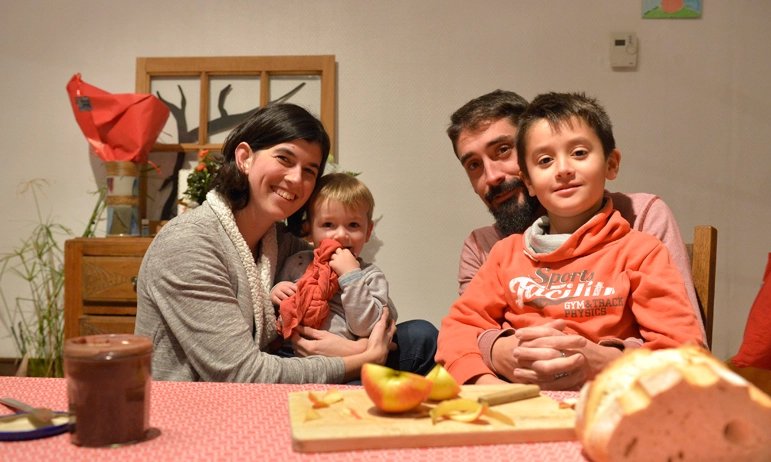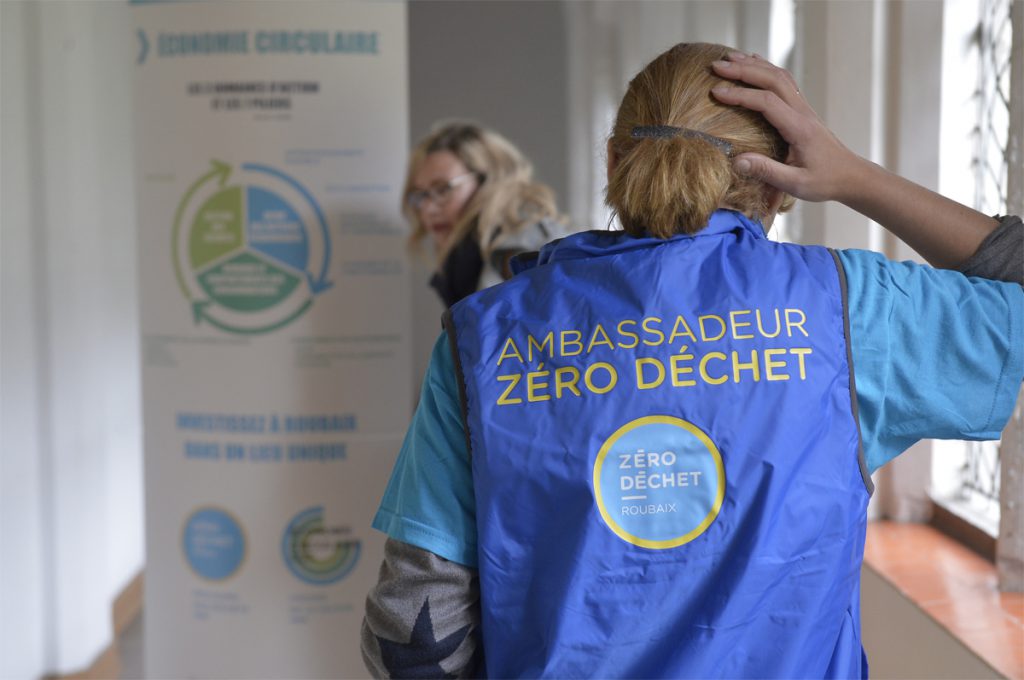
Zero Waste families in the circular economy !
Since its launch in 2014, the Zero Waste family challenge brought together 400 families. The approach to voluntarily reducing the volume of waste had other impacts. In reducing their waste by 50% per year, these families enjoyed greater purchasing power and participated in a collective adventure that sometimes led to significant changes in their life path. Their consumption habits also evolved.

The Zero Waste stakes for economic actors
Many economic actors follow a linear utility logic with respect to their resources : extraction, transformation, utilisation, elimination. This kind of functioning is not sustainable in a wolrd of finite resources.
Economic actors are often at the origin of waste creation. It is possible for them to launch a Zero Waste campaign in their office activities, but that’s not where the impacts are the most significant. It is at the very heart of the compagny’s activity that action must be taken. The development model for these companies is that of the circular economy, or how to do better with fewer recources.
Today, over sixty structures are already engaged in the circular economy.
The inputs of the circular economy
The circular economy is responding to the ecological crisis by helping new development models to emerge which :
- provide a competitive advantage;
- foster the creation of local employment that is not subject to delocalization;
- generate economies and productivity gains;
- render supply chains and the cost of raw materials more secure.
The City supports the development of a circular economy in the area
The City of Roubaix wishes to accompany the rise of the circular economy by contributing to the development of the actor ecosystem : By attracting new actors to the area, creating new synergies between companies, but also by creating a House of the circular economy and Zero Waste at the former Clarist convent in Roubaix.

Ambassador companies
Some companies established in Roubaix have already accepted the challenge of the circular economy :
- Etnisi, transforms end wastes into quality materials
- Fibr&Co, a job integration program, manufactures designer furniture from waste and bulky refuse
- Wecosta (WTX), equipment supplier for the automobile industry, develops the manufacturing of eco-design products
- OVH, a European leader in the accommodation industry, has developed a technology for the recuperation of heat produced by its servers in order to heat its buildings
- Le pôle de compétitivité Up-Tex established at the European Centre for Innovative Textiles accompanies th textile industry towards greater circularity
- La Gentle Factory designs clothing that is bio-based and made in France
- Niiji which produces the returnable lunchboxes






